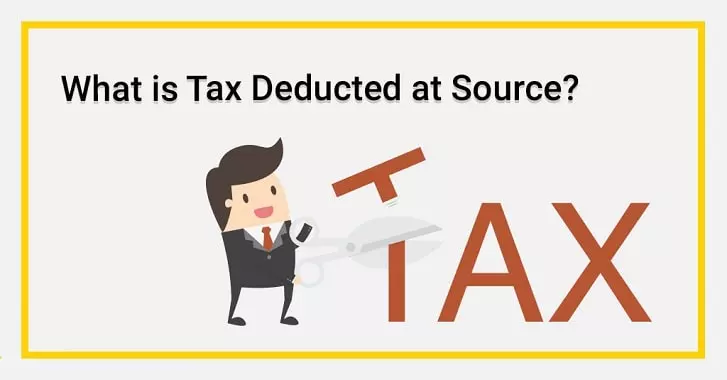If your net income exceeds the 2.5 lakh rupee limit, then you automatically become eligible for an income tax return. However, the income tax percentage depends upon the net income of an individual, corporate entity, authority, or group of individuals. The financial year for income tax starts on 1st April and ends on 31st March. That’s the reason, the income tax season starts after 31st March when everyone’s filing their ITR.
But, if you haven’t filed ITR before, and you want to know what would be the advantages of filing an income tax return, and what consequences you would have to deal with if you don’t file your ITR? Well, then keep on reading this post because we are here to let you know about the possible pros and cons of filing income tax returns.
So stay tuned because there’s a lot to talk about, and you’ll find some interesting information throughout today’s post.
Advantages Of Filing Income Tax Return
Here are some important benefits of filing income tax return (ITR):
1. Quick Loan And Credit Approval
When applying for various loan options like a vehicle loan, home loan, business loan, etc. The bank requires you to submit the ITR filing of the recent year. By asking for the ITR, the bank verifies that you are capable enough to repay the loan amount with interest. Not just that, an income tax return works as income proof, and you can get higher loan amounts with lower interest rates from most banks. Based on this fact, you can start filing income tax returns, so you can be eligible for the various loan options.
2. Easy Visa Approval
Usually, if you apply for a visa for tier 1 countries like USA, UK, and Canada, then there are higher chances that your visa will get rejected if you haven’t submitted an ITR filing as proof. By asking the proof of ITR filing for the last 3 years, these tier 1 countries verify that you are not leaving your countries because of tax evasion. So if you desire to live, or work in such tier 1 countries, you must start filing your income tax. This way, not only do you have a chance of living or working abroad, but your visa gets approved way faster than you expect.
3. Capital Creation
If you want to build white money wealth, then you have to file income tax returns every year. Otherwise, your wealth won’t be considered white money. By filing ITR every year, you are letting the government know about the sources and how much money you have earned from your profession or business. Suppose, if you are filing ITR for the last 10 years, then you built a wealth that is totally white money and you can save or spend it however you want.
4. Direct Contribution To Nation’s Growth
A considerable portion of the government’s income comes from Income tax, and by filing ITR every year, you are directly contributing to the government’s income. And then the total amount is used to improve public infrastructure, offer various welfare schemes, scientific research, defense, reduce inflation, etc. The income from ITR is used for various government operations, which ultimately helps the nation grow. Not just that, the government also utilizes this fund for pension schemes, law enforcement, paying salaries to government employees, etc.
5. Claiming Tax Refunds
Filing ITR allows you to claim tax refunds if you have paid more taxes than you owe. This can help you get back excess tax payments.
6. Financial Record
ITR serves as a financial record, which can be useful for future financial planning and investment purposes.
Disadvantages Of Not Filing Income Tax Return
Here are some drawbacks of not filing income tax return (ITR):
1. Heavy Penalties
When someone doesn’t pay ITR on purpose, the income tax department or the government can impose heavy penalties on that individual, organization, company, group, or authority. These charges can go as high as 10 thousand rupees and even higher in some cases. But the penalties aren’t directly imposed on the taxpayer, the department will first notify you and listen to your side first.
2. Income Tax Notice
The income tax department now has access to advanced technology, and other things, which they can use to keep track of someone’s tax-paying activities. If the income tax department finds anything suspicious about an individual, organization, authority, company, or group of individuals, the department can take strict action. But before taking action, the department issues a legal income tax notice, which is enough to shake you up if you are liable for some suspicious activity.
3. Tax Deducted at Source (TDS) Refund
If you work as a salaried employee for a large corporation or organization, you may be familiar with TDS, or Tax Deducted at Source. It is a type of tax that the organization or a company pays on their employee’s behalf. And there are facilities where you can file for the TDS refund every year if you file your ITR for every financial year. If you don’t file ITR, then you can’t get the benefits of TDS refund schemes.
4. No Carry Forward Of Losses
For example, if an individual is running a successful business, but unfortunately he/she faces a loss of 10 lakh rupees in a year. And in that case, most individuals decide not to file ITR because of the loss. But you should actually let the government know about your business losses since you can carry forward your recent year’s losses to the next year’s ITR. So if next year you make a profit of 20 lakh rupees, you don’t need to pay income tax for the whole profit, instead, the previous year’s 10 lakh rupees loss will be counted in the next year. This way, you will only file ITR for 10 lakh rupees next year, despite making a profit of 20 lakh rupees.
5. Limited Financial Options
Without a valid ITR, you may have limited financial options, and it could affect your financial standing in the long run.
Conclusion
Alright, now you know what are the possible benefits/advantages and disadvantages of income tax return filing. With these important points, you should have a clear grasp of why you should pay income tax every year, and what consequences you may face if you don’t.















